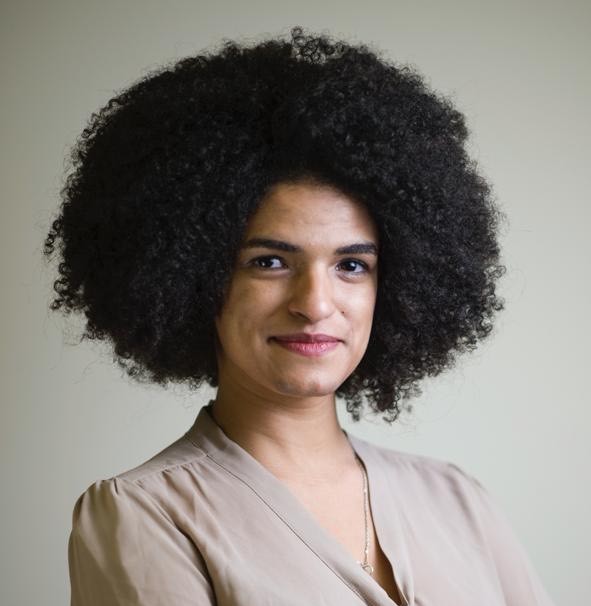
“Weaponizing Misogyny”: Gender-Based Harassment’s Impact on Journalists and Free Expression
Whether they are reporting on gun violence, covering protests in the post-Dobbs era, or sharing information about COVID with the public, journalists are on the frontlines, bringing important issues to light. But the risks of that reporting don’t lie equally with everyone. White women journalists face much more significant harassment than their white male counterparts, and women of color face harassment based on their gender, race/ethnicity, or both at the same time.
These dynamics have impacts on both journalists and journalism. Harassment of journalists creates a strong chilling effect on coverage, resulting in self-censorship or censorship. These threats result in fewer voices, especially fewer diverse voices, left to cover important stories. Join IfRFA for a discussion of how gender-based harassment online and off shapes our speech environment, leading to differing coverage and barriers to the free expression of ideas, featuring Elisa Lees Muñoz of the International Women’s Media Foundation, Jeje Mohamed from PEN America, Pratika Katiyar of the Student Press Law Center, and Taylor Lorenz of the Washington Post.
Speakers:
 Elisa Lees Muñoz joined the International Women’s Media Foundation nearly two decades ago and was appointed its Executive Director in 2013. Elisa leads the organization to support women journalists and develop their careers by providing bylines, training, tools and assistance. Elisa is a leading expert on the intersection of gender equity and press freedom and a relentless advocate for women journalists, striving to prioritize their voices within press freedom. Elisa began her work in human rights following her graduation from the University of Maryland with an MA degree in International Relations. With more than 15 years of nonprofit management experience, she is an expert in philanthropy, coalition building, fundraising and organizational development. Off the clock, her passions include spending time with her family, biking D.C.’s many trails, and all things España, her country of origin.
Elisa Lees Muñoz joined the International Women’s Media Foundation nearly two decades ago and was appointed its Executive Director in 2013. Elisa leads the organization to support women journalists and develop their careers by providing bylines, training, tools and assistance. Elisa is a leading expert on the intersection of gender equity and press freedom and a relentless advocate for women journalists, striving to prioritize their voices within press freedom. Elisa began her work in human rights following her graduation from the University of Maryland with an MA degree in International Relations. With more than 15 years of nonprofit management experience, she is an expert in philanthropy, coalition building, fundraising and organizational development. Off the clock, her passions include spending time with her family, biking D.C.’s many trails, and all things España, her country of origin.
 Taylor Lorenz is a columnist at The Washington Post covering technology and online culture. Before joining The Post, she was a technology reporter for the New York Times' business section. She was also previously a technology reporter at the Atlantic and the Daily Beast.
Taylor Lorenz is a columnist at The Washington Post covering technology and online culture. Before joining The Post, she was a technology reporter for the New York Times' business section. She was also previously a technology reporter at the Atlantic and the Daily Beast.
Pratika Katiyar is a GenZ free expression activist. She is the youngest member of the Board of Directors of the Student Press Law Center, a national legal services nonprofit that protects and defends students' First Amendment rights. Over the past few years, she testified for New Voices legislation to restore student free speech rights, and spearheaded a nationwide campaign promoting First Amendment protections for student journalists. She has spoken on panels for PEN America, Georgetown Law School, and the United Nations. For her work, she has been profiled in several news outlets, notably Teen Vogue, NBC Washington, and ABC, and has written op-eds for the Richmond Times-Dispatch, YR Media, and CNN. She is a student at Northeastern University.
 Jeje Mohamed has over nine years of experience working on human rights issues, journalism, and safety and security in the Middle East and internationally. Before joining PEN America, she was a Next-Gen Safety Trainers fellow with the International Women’s Media Foundation, developing more inclusive and trauma-informed safety and security training. She managed several campaigns and programs focusing on sex trafficking, racial disparities, and human rights violations in Egypt and exile. She led and took part in the production of documentaries focusing on social issues and founded Witness Magazine that covered human rights abuses in Egypt and the Middle East. She holds a bachelor’s degree from the American University in Cairo in multimedia journalism and international relations and completed a graduate degree in international media focusing on human rights and democracy in areas of conflict as an OSF Civil Society Leadership Award Fellow at American University.
Jeje Mohamed has over nine years of experience working on human rights issues, journalism, and safety and security in the Middle East and internationally. Before joining PEN America, she was a Next-Gen Safety Trainers fellow with the International Women’s Media Foundation, developing more inclusive and trauma-informed safety and security training. She managed several campaigns and programs focusing on sex trafficking, racial disparities, and human rights violations in Egypt and exile. She led and took part in the production of documentaries focusing on social issues and founded Witness Magazine that covered human rights abuses in Egypt and the Middle East. She holds a bachelor’s degree from the American University in Cairo in multimedia journalism and international relations and completed a graduate degree in international media focusing on human rights and democracy in areas of conflict as an OSF Civil Society Leadership Award Fellow at American University.
 Kendra Albert is a public interest technology lawyer with a special interest in free expression issues. They are a clinical instructor at the Cyberlaw Clinic at Harvard Law School, where they teach students to practice technology law. Kendra founded and currently runs the Initiative for a Representative First Amendment, which provides funding and support to students from backgrounds traditionally underrepresented in freedom of expression work. Kendra holds a JD cum laude from Harvard Law School and a BHA from Carnegie Mellon University. They serve as the Chair of the Board of Directors for the Tor Project, and as a member of the Board of Directors of the ACLU of Massachusetts.
Kendra Albert is a public interest technology lawyer with a special interest in free expression issues. They are a clinical instructor at the Cyberlaw Clinic at Harvard Law School, where they teach students to practice technology law. Kendra founded and currently runs the Initiative for a Representative First Amendment, which provides funding and support to students from backgrounds traditionally underrepresented in freedom of expression work. Kendra holds a JD cum laude from Harvard Law School and a BHA from Carnegie Mellon University. They serve as the Chair of the Board of Directors for the Tor Project, and as a member of the Board of Directors of the ACLU of Massachusetts.
Registration:
Please register for the event here! For more information, please email: [email protected].
Resources to learn more:
- From Emergency to Prevention: Protecting Journalists from Online Abuse | RSM
- Online mobs are now coming for student journalists | Washington Post
- Safety of Women Journalists | UNESCO
- “I’m Afraid to Open Twitter”: Next-Level Harassment of Female Journalists Is Putting News Outlets to the Test | Vanity Fair




